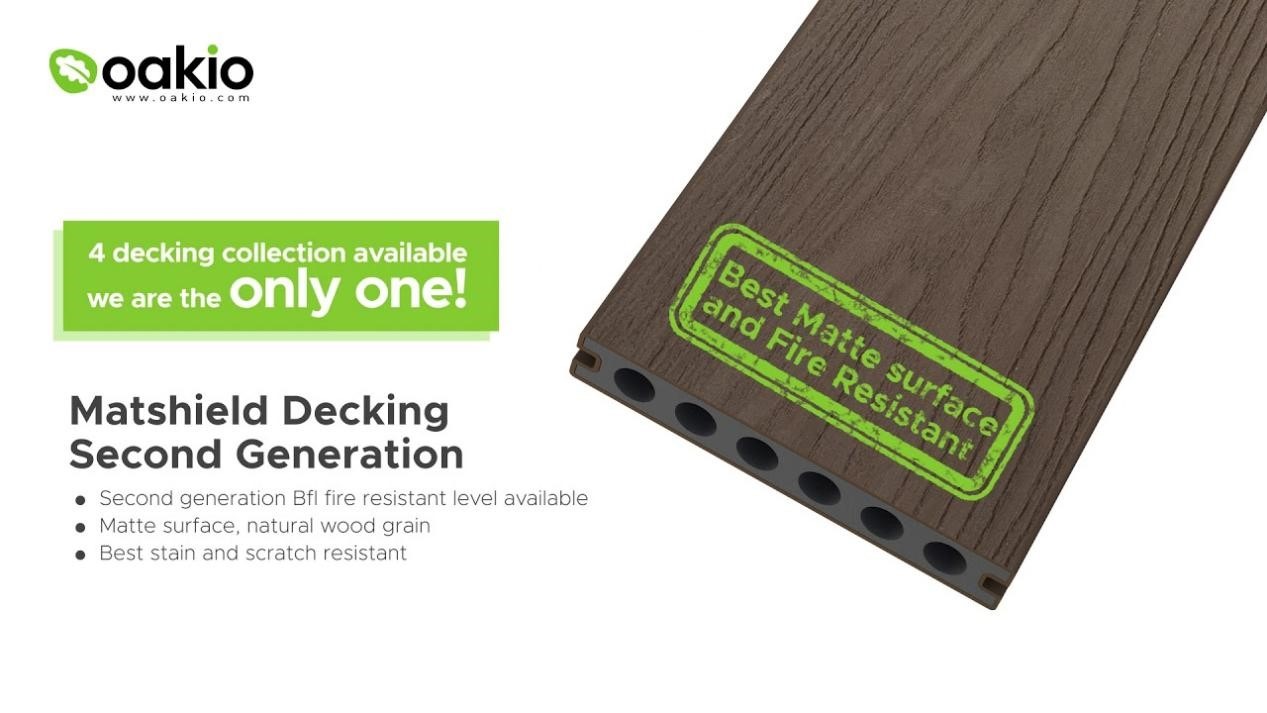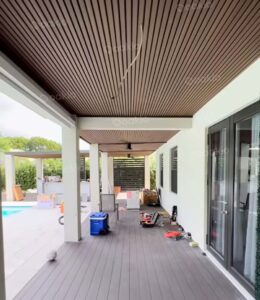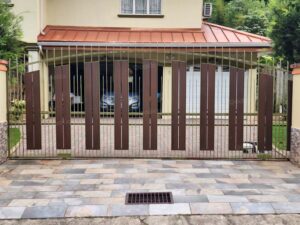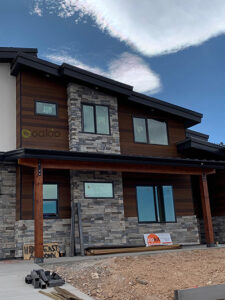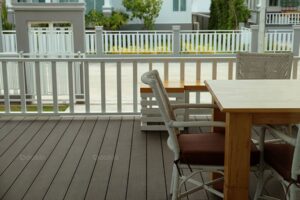Fireproof Decks and Other Best Home Fire Protection Practices
With the recent devastation of the California wildfires, one fact has been proven: fireproofing your home can not only save your property from destruction, it can save your family’s lives. And more than having smoke detectors and sprinklers, fire safety begins at construction.
Wildfires pose a serious threat to houses, especially in scorching hot regions where the air is dry, which paves the way for fires to occur frequently. Fires destroy many homes yearly, and sometimes, decks cause the fire to spread quickly and dangerously.
Fire prevention is more than important, it’s critical. One of the most effective ways to protect your home is by employing fire protection methods, such as using fireproof and fire-resistant materials in your decking, flooring, and so on. These materials may stop the fire from reaching the main structure of your home—or at least delay it enough for you and your family to make a safe escape.
This guide explores the pros of fireproof decking and its important role in ensuring your home is ultimately safe from the risk of widespread fire.
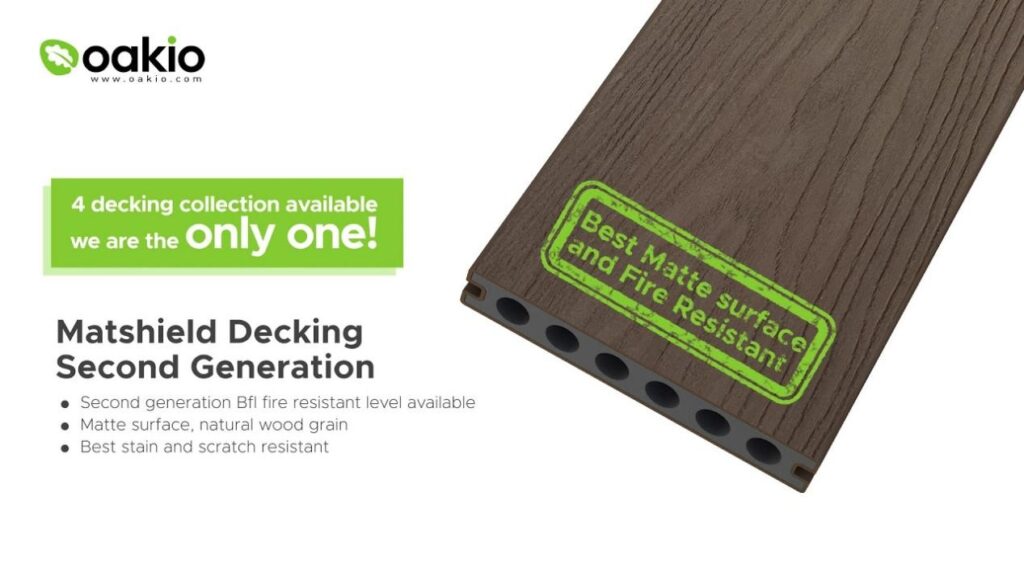
Fireproof Decking: Safety Benefits and Beyond
Fireproof decking materials, like Oakio’s Matshield, are designed to resist ignition, reducing the chances of your deck catching fire from a nearby blaze or sparks.
Fireproofing a decking material is usually done by treating wood or composite material with fire-resistant chemicals or by utilizing naturally fire-resistant materials. Some composite decking products, like Matshield for instance, contain fire-retardant additives that inhibit the spread and the development of fire.
Treated wood also undergoes a process that enables chemicals to penetrate the fibers to make it more heat and fire-resistant. In addition, other fire-resistant materials worth considering include metal and stone decking options, on top of fire-resistant WPC to offer a well-rounded fire protection for your deck.
With fireproof decking materials, you can significantly lower the chances of fires spreading to your house and you can create a safer outdoor space that won’t contribute to a fire’s spread, keeping your home and family protected.
Designing Fireproof Decks
If you’re in an area at risk for wildfires, deck placement is more than important. Place your deck away from fire hazards, such as dry vegetation, wooden fences, or propane tanks. A properly placed deck creates a buffer space, reducing the chance of a fire reaching your home.
Deck size also plays a role in fire resistance—a smaller, well-contained deck is easier to protect and maintain, while a bigger one can be a headache. So consider using fire-resistant barriers like stone pathways or gravel around the deck to further reduce fire risks, regardless of size.
As for installation, even the best fireproof decking material won’t last long unless it’s installed properly. To avoid embers from becoming trapped, ensure board gaps are at a minimum. You can also use fireproof framing, such as steel joists to further improve your deck’s fire resistance.
Maintenance-wise, you’ll need to dispose of everything in the deck that may pose a risk. Combustible materials such as dry leaves, debris, and flammable materials like gas cans should be kept off the deck. Ensure that any fire-retardant chemicals are also reapplied periodically to maintain maximum protection all year long.
Best Safety Practices for Existing Homes
Smoke Alarms, Fire Extinguishers, and Early Warning Systems (EWS)
Installing a working smoke detector in each bedroom and on each level of your home is necessary—and is legally required in almost all of the 50 U.S. states.
These smoke alarms can give you precious seconds and up to a few minutes, potentially saving lives and properties. With this in mind, it’s best to regularly test them once a month and replace batteries as needed to ensure they’re working, especially when you need them the most.
Fire extinguishers should also be installed in easily accessible places, particularly in the kitchen, garage, and deck. If you’re not familiar with how to use one, you can learn online. Also, ensure they are properly working by getting them inspected regularly—some extinguishers like dry powder may clump and clog the nozzle.
Fire Escape Plans
A well-thought-out escape plan can definitely be a lifesaver. Identify multiple exits in every room and teach all household members—including children and pets, how to evacuate safely, swiftly, and calmly. If possible, practice fire drills with your loved ones twice a year to polish the plan under different scenarios, especially if your area is prone to wildfires.
General Fire Safety Tips
- Post emergency phone numbers in a place where everyone can see them easily.
- Check the location and condition of extinguishers regularly to ensure effectiveness
- Remove easily combustible materials, such as dry leaves, paper, and carton boxes from decks, patios, and yards.
- Store firewood, gas cans, and propane tanks away from the home to prevent unintentional ignition.
The Benefits of Fire-Resistant Home Design
Fire-resistant home designs have been shown and proven to save properties during the recent massive Los Angeles wildfires. But having a fireproof house isn’t just one thing—it’s an interconnected system that incorporates fire-proof materials, strategic landscaping, and defensive construction methods.
Fire-Resistant Materials
A significant part of home design is the materials used. Using these can dramatically reduce the damage potential of a fire:
- Stucco and fiber cement create a non-flammable barrier suited for exterior walls.
- Fireproof composite decking withstands ignition and halts flames from spreading into other areas.
- Fire-resistant composite cladding adds a layer of protection to weak spots of the house that are vulnerable to quick combustion.
Fire-Smart Landscaping
Apart from materials, a master-planned landscape can slow or even stop a fire from reaching your home:
- Keep trees, planters, and shrubs trimmed, especially if near decks or other combustible structures, as they can easily combust.
- Use fire-resistant plants, like succulents that contain water to create a natural barrier.
- Position decks away from potential fire sources, like dense vegetation and overgrown trees. You can also use gravel to physically separate them from potential fire starters.
Conclusion
Fire safety starts with taking various steps and coming up with smart decisions, and fireproof decking is one of the crucial steps to protect your home from a fire. From choosing fire-resistant materials, to actively using and practicing safety precautions, you can reduce fire risks and increase your chances of protecting your loved ones and your home in the event of a fire.
To complete your fire safety and protection campaign, it’s best to invest in a fireproof decking like Matshield—-the best fire-resistant WPC product of Oakio! By choosing our product, you’re making fire safety not just a necessity, but a high priority.
Trending Reading
What Are the Differences Between the WPC Board and PVC Board?
[2025 Update] How Long Does WPC Decking Last?
